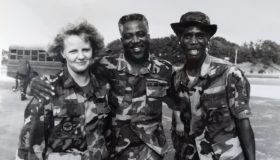A Silent Salute: Reflecting on National Korean War Veterans Armistice Day
July 24, 2025
Peace is not the absence of war, but the presence of justice.
Every year on July 27, America pauses in solemn reflection to honor the Veterans of the Korean War and commemorate the fragile, yet enduring ceasefire signed more than seven decades ago. National Korean War Veterans Armistice Day is not just a marker in time—it is a reminder of the courage it took to halt one of the bloodiest conflicts in modern history, the invisible diplomacy that saved millions, and the unhealed scars still etched into the Korean Peninsula.
The Road to a Ceasefire Paved in Blood
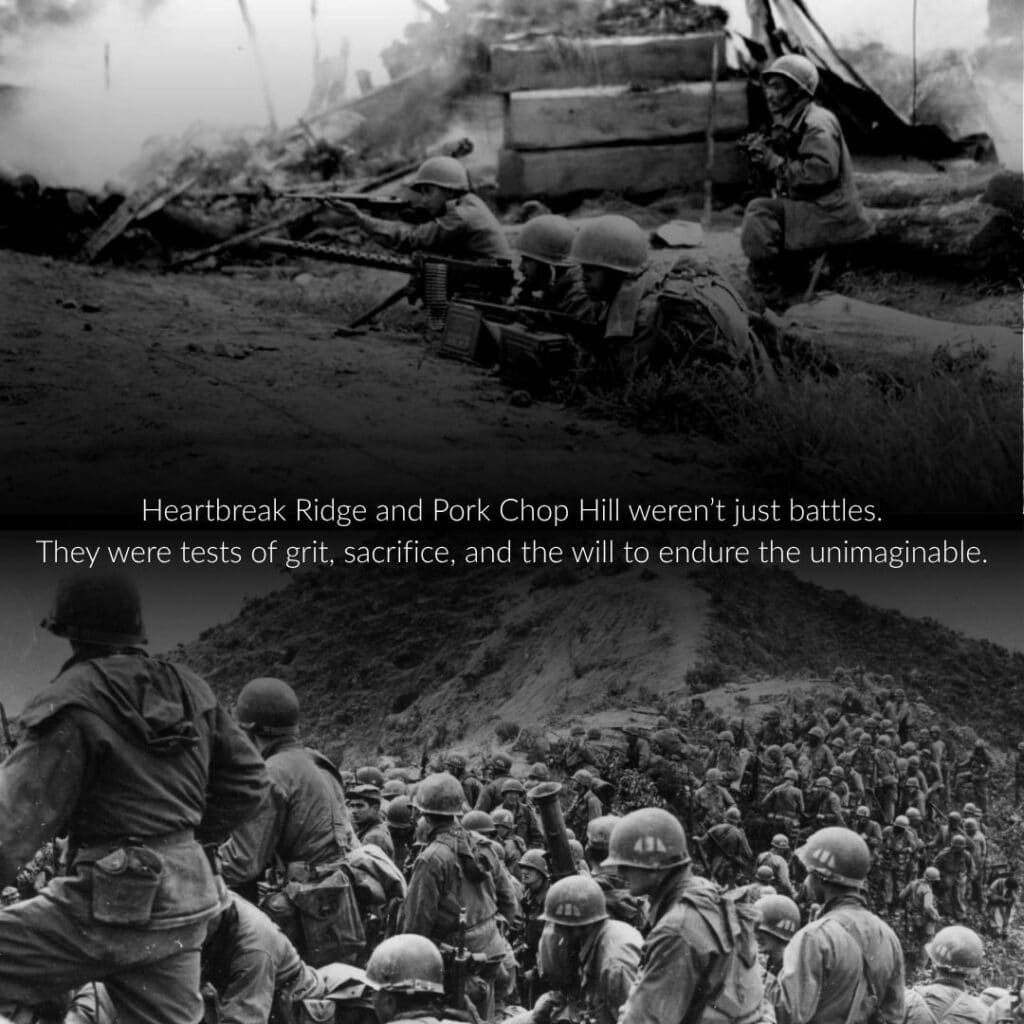
By the summer of 1953, the Korean War had stretched on for three agonizing years. What began in June 1950 as a rapid invasion by North Korean troops quickly spiraled into a global conflict involving more than 20 countries. The war saw cities flattened, families torn apart, and nearly five million soldiers and civilians killed or wounded.
By late 1951, frontline positions had hardened along the 38th parallel, and fighting devolved into a brutal stalemate. Hills were captured and recaptured at a terrible cost—battles like Heartbreak Ridge and Pork Chop Hill became grim symbols of a war that neither side could win outright. Behind the scenes, the world was weary. The public demanded answers, and leaders on all sides knew something had to give.
The Architects of Armistice

Though generals orchestrated strategies and soldiers held the lines, it was diplomats—often in windowless rooms in Panmunjom—who held the fate of millions in their hands.
General Mark W. Clark, the U.S. commander in the Far East, carried the burden of finalizing a ceasefire that would never feel like victory. He famously said, “I gained the unenviable distinction of being the first United States Army commander in history to sign an armistice without victory.” Yet his courage to pursue peace over glory helped save countless lives.
On the opposite side, Marshal Kim Il Sung played a dangerous game of brinkmanship, backed by China and the Soviet Union. Though never at the negotiation table himself, his ideology shaped every hardline demand.
Perhaps the most unsung hero was Lieutenant General William K. Harrison, Jr., who represented the United Nations Command at the armistice talks. He spent nearly two years in grueling negotiations—battling walkouts, propaganda, and psychological warfare—before signing the final agreement on July 27, 1953.
Who Benefited, Who Lost
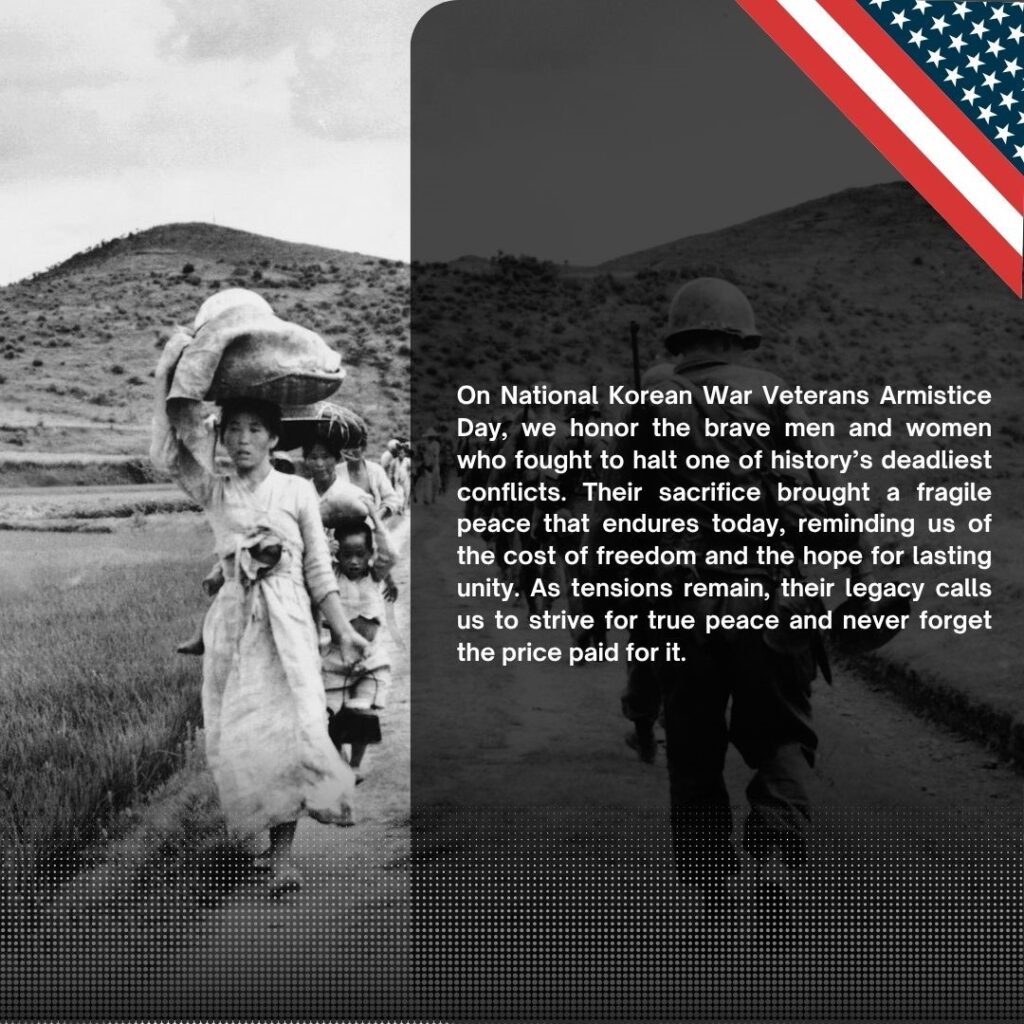
The Armistice Agreement brought an end to open hostilities, but it was a peace with caveats. No peace treaty was ever signed. No reunification occurred. The war was merely “paused”—not ended.
Who Benefited:
- Millions of lives were spared. The fighting stopped, allowing wounded nations to begin healing.
- South Korea was preserved as a sovereign democratic nation, eventually rising to become a global economic powerhouse.
- Both North Korean soldiers and civilians saw the end of daily bombardments, though peace came under a shroud of authoritarianism.
- Families around the world—from the U.S. to Turkey to Ethiopia—saw their sons return home from a war far from their own soil.
Who Lost:
- Over 36,000 American service members gave their lives, and over 100,000 were wounded.
- Thousands of POWs were never returned, with many still unaccounted for.
- Korean families were split, divided by a demilitarized zone (DMZ) that became the most heavily guarded border on earth. Many never saw their loved ones again.
- The dream of a unified Korea was postponed indefinitely—replaced by a tension that would calcify for generations.
The Emotional Weight of the Armistice
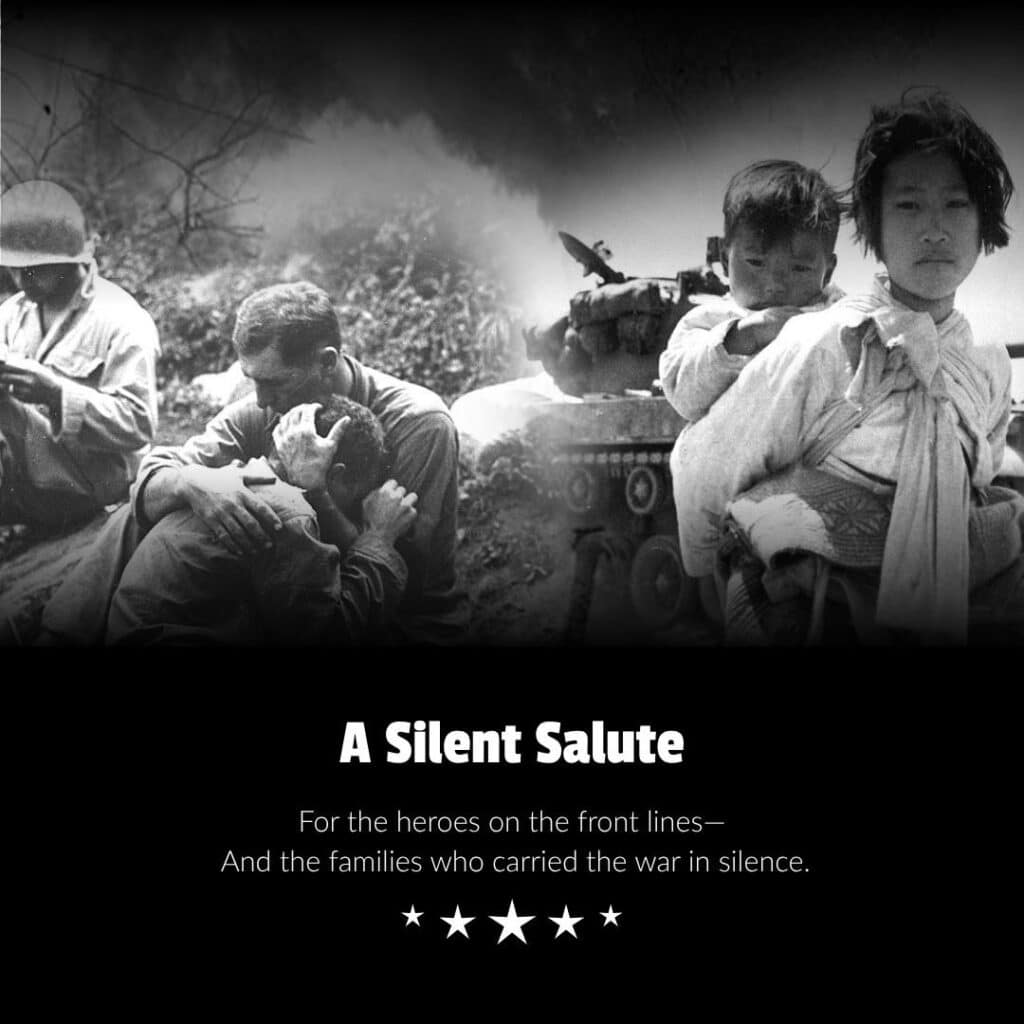
For many Veterans, July 27 does not feel like a victory. It feels like an unfinished chapter. The Korean War became known as “The Forgotten War,” overshadowed by World War II before it and the Vietnam War after. Yet those who served remember every moment—every trench, every fallen comrade, every inch of frozen terrain.
On National Korean War Veterans Armistice Day, we remember Korean War Veterans not for the war they fought, but for the peace they made possible. Their sacrifice lives on in every child playing freely in Seoul’s parks, in every South Korean innovation, and in every shared meal between U.S. Veterans and the Korean people who call them heroes.
What the Armistice Means Today
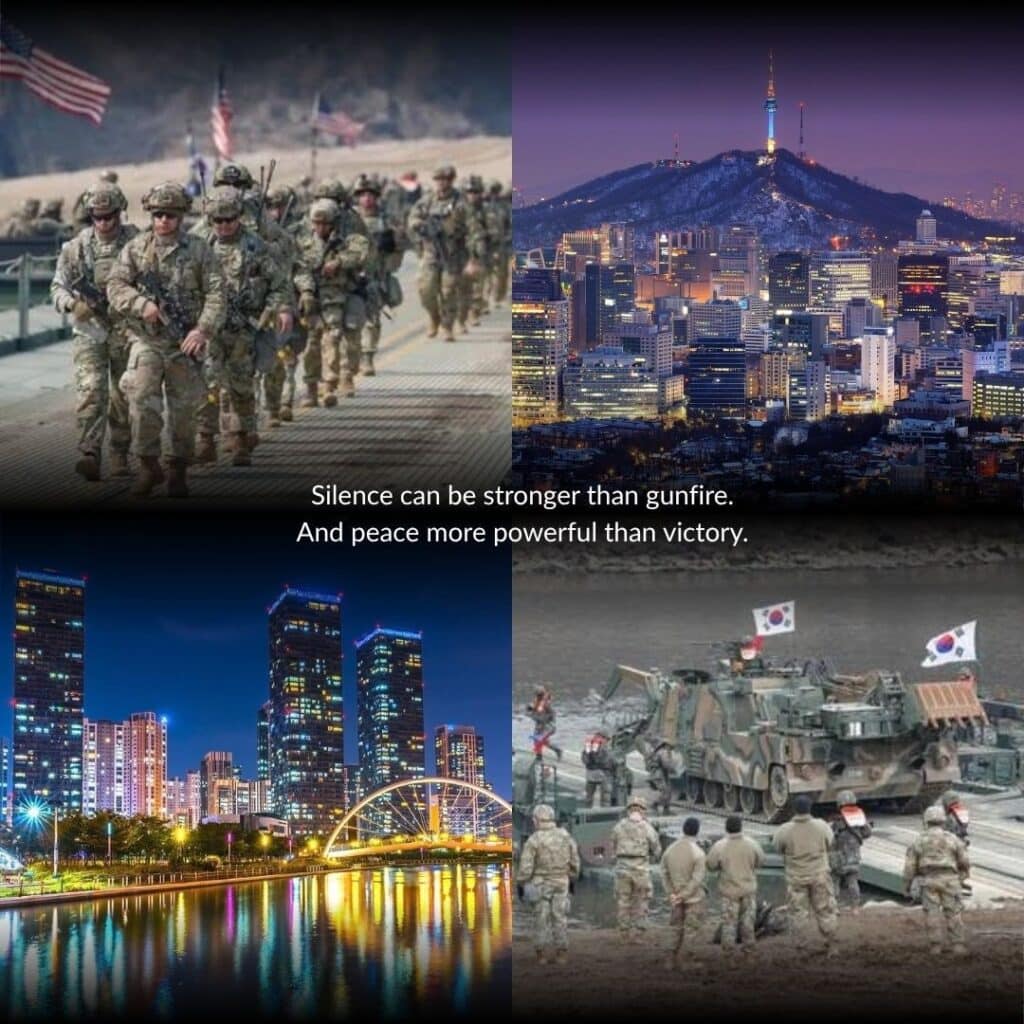
The armistice has held—technically—for 72 years. The Korean Peninsula remains divided, but war has not returned on the same scale. That’s no small feat in a world of shifting alliances and nuclear threats.
The ceasefire gave birth to:
- The U.S.–South Korea alliance, now one of the most critical partnerships in the Indo-Pacific.
- The United Nations Command, still active today, ensuring enforcement of the armistice terms.
- South Korea’s democracy, which flourished despite authoritarian roots and is now among the most advanced in the world.
Will There Ever Be Peace? Or War?
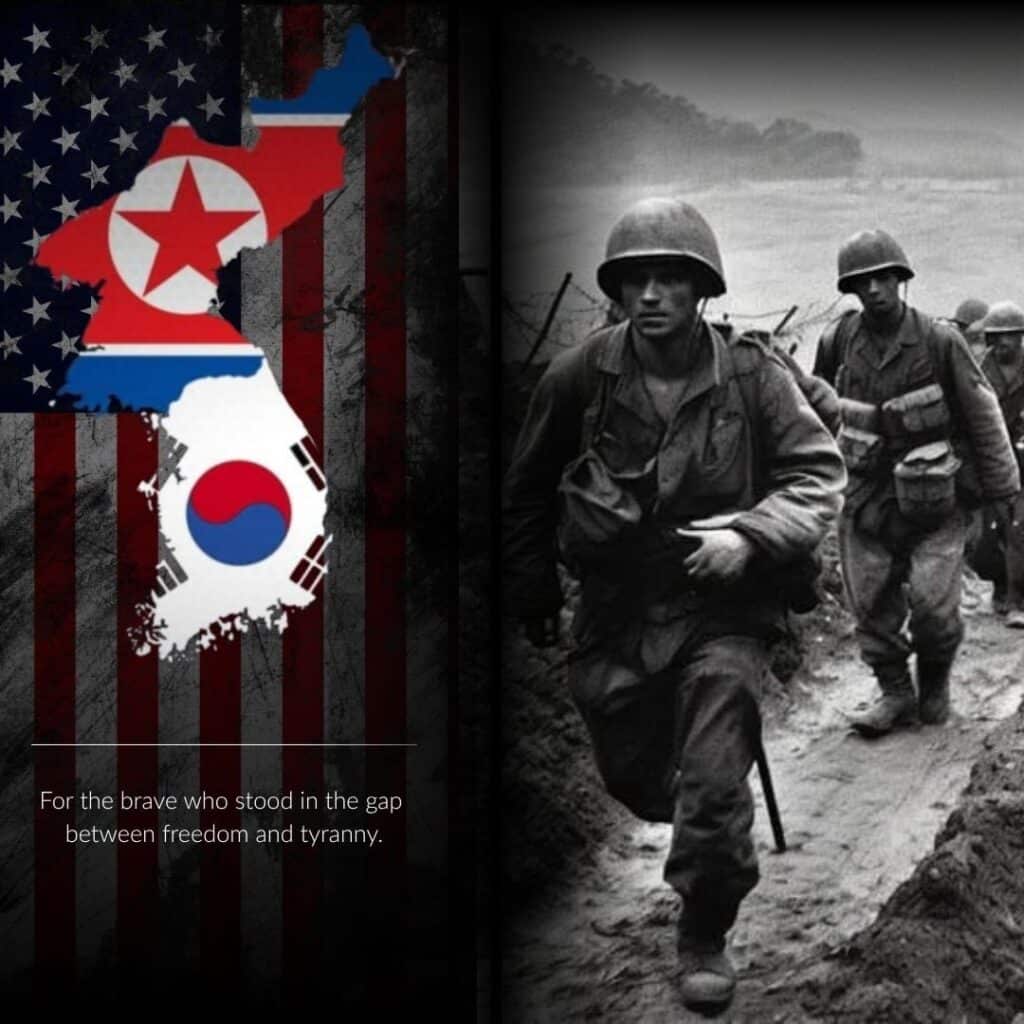
The armistice remains just that—a pause, not a resolution. North Korea continues its weapons development and periodic provocations. In recent years, missile tests and border skirmishes have reignited global fears.
Could war return? The possibility exists. But so does hope.
Every handshake between North and South Korean leaders—no matter how brief—rekindles the dream of peace. Every reunion of divided families reminds the world what’s at stake. And every year, on July 27, we are reminded that diplomacy, while imperfect, remains the most powerful weapon we possess.
A Call to Remember
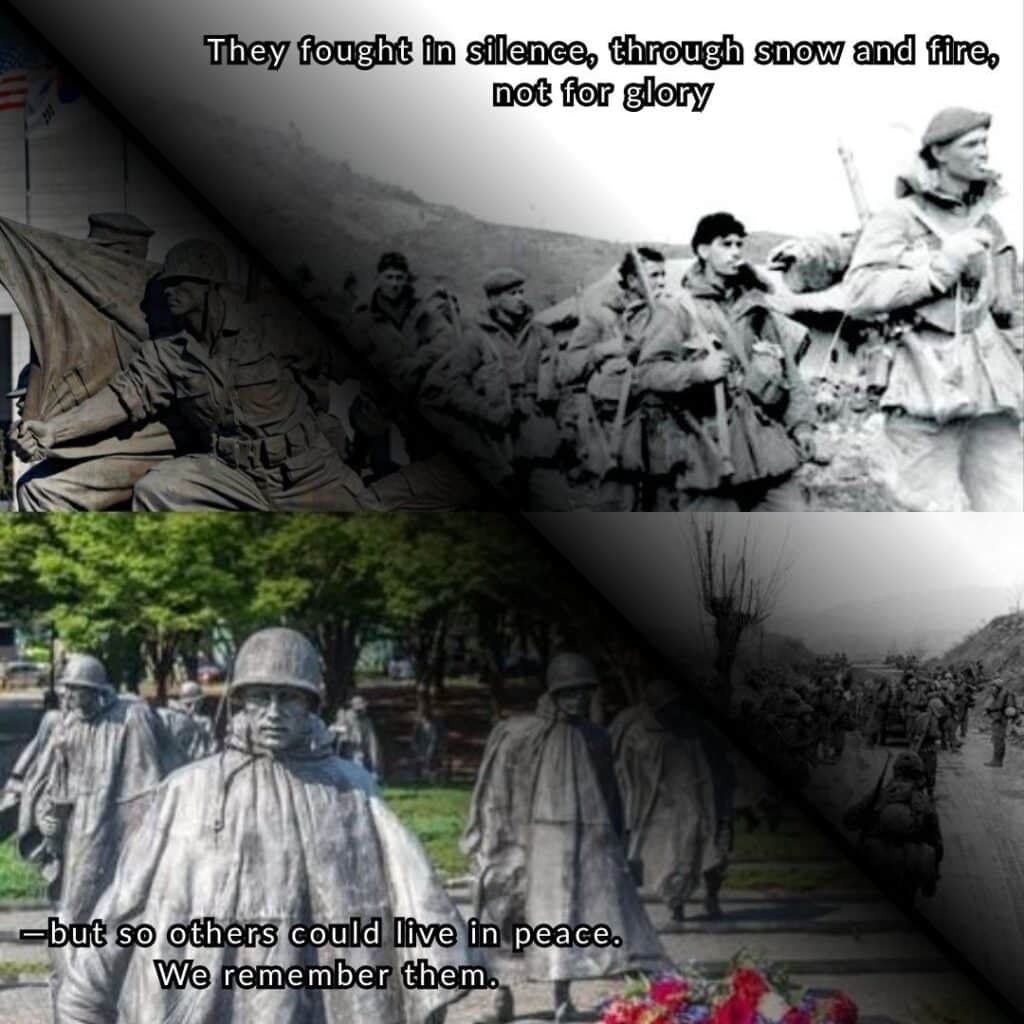
As we lower our flags to half-staff on National Korean War Veterans Armistice Day, we must not only honor the past—we must protect the future. That means telling the stories of those who served. It means teaching younger generations about the sacrifices made—and standing guard over the hard-won peace they left behind.
Because silence does not mean peace. And forgetting the war does not honor those who endured it.
Let us remember. Let us honor. And let us never stop striving for a world where armistices are no longer necessary.
To all Korean War Veterans—thank you. You are not forgotten.
Share this story. Say their names. Carry their legacy.
About the Author

Mike Isaac-Jimenez is a 25-year U.S. Air Force Veteran transitioning into retirement in San Antonio, TX, and currently serving as a SkillBridge intern with Soldiers’ Angels. He holds a B.S. in Technical Management (Project Management) from Embry-Riddle Aeronautical University, along with A.A.S. degrees in Mechanical & Electrical Technology and Mechanical Engineering.
